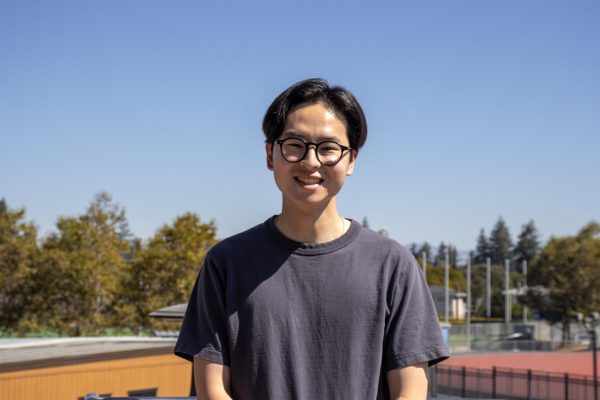Every time I tell someone that I work remotely, they look at me in a confused manner. After all, they assume that I am just a kid who is far, far away from entering the job market. However, what they don’t know is that the remote opportunities that I’ve taken on have led me to my greatest passions and joys.
During my underclassman years, I interned for a local Congressional campaign. Working on neighborhood canvassing, I trekked from one house to the next, knocking on doors to convince residents to support my candidate. Many residents were uninterested in my message; in fact, many were indifferent about voting and elections in general. When I got home, I felt discouraged — not only because those doors were shut, but also because I felt powerless to find a solution to voter apathy in my community. Who am I to solve problems in America? I’m an immigrant, I thought. Why do I care so much for this country when I’m not even allowed to vote in elections? Yes, I loved politics. But was that enough?
After spending two years canvassing in the campaign, I grew an emotional attachment to my community members. When someone shared their concerns about the government, those conversations led to relationships. While some people shut their doors on me, I felt welcomed by those who greeted me with open arms. Moving from Singapore to Korea to Taiwan to America, I never had a country to truly call home. As I eventually found a place in San José, I felt more and more passionate about encouraging people to create the country they want to live in through their vote.
Here’s the problem: I didn’t know where to start. In such a STEM-centric area, civic engagement opportunities are limited. Eventually, I had to broaden my search. One night while scrolling through LinkedIn, I came across New Voters, an organization that mobilizes youth to run voter registration drives while teaching them about civic engagement. With goals that aligned with mine, I applied for their summer internship right on the spot, and a week later, received an offer letter. Though this was an exciting journey, I knew that it would be very different from my other experiences because of its remote aspect.
I spent the summer after my sophomore year working with New Voters on a small laptop screen. From learning how to perform outreach to designing programs and curriculums, the ability to work remotely gave me the chance to take on an opportunity that I would not have been able to take on otherwise. I remember having to take a meeting at 4 a.m. because I was on vacation in a different time zone. Though I fell asleep as soon as the meeting ended, my last thought was about how much I was looking forward to the next meeting.
When I was ready to expand my mission in civic engagement, I found another opportunity through the college and career newsletter: Rhizome, a grassroots nonprofit training youth to make an impact in their community. I worked with them as a community organizer starting in my junior year. I mentored local high school students to pilot their own community empowerment projects, such as the 2024 San José Youth Voter Summit. These experiences reflected another powerful advantage in remote opportunities: the chance to hear from diverse perspectives. As many of my colleagues had a diverse range of backgrounds and experiences, I had the privilege of hearing their stories. This helped me grow an understanding for the other people who I worked with, enabling me to better listen and support them.
The pinnacle of my remote journey was working with Trinity Challenge, a charity supporting innovative solutions against global health threats. As I became involved as a moderator for their 2024 Youth Summit on Antimicrobial Resistance, I met students from all over the world, including Laos, Cambodia and Africa, listening to their stories of making an impact in their communities while raising awareness about antimicrobial resistance. Not only was I grateful for the opportunity to meet with students living all around the world, but I was also moved by their driven attitude toward bettering their community despite limited resources. Not only was I able to explore different solutions to world issues, but these students empowered me to make meaningful change in my community — during college, career and beyond.
While remote opportunities helped me explore my passions, I often couldn’t help but feel a stinging sense of fatigue because I felt detached from the people I worked with remotely. Sure, the internet allows us to communicate, but in reality, these people were thousands of miles away from me. During these times, I remember what united us all: the goal of helping our youth shape the world they will inherit. As cheesy as it sounds, remembering that goal made it feel like we were all together.
Flash-forward to today, I’m now a committed international affairs major who wants to expand his passion for public policy to uplift developing communities around the world. Simultaneously, I hope to continue mentoring young people to use their voice to shape a safer, happier and healthier future. Through it all, I would have never been able to find my path without the opportunities I had and the chance to communicate with other youth leaders from different corners of the globe — all through my computer screen.








































































